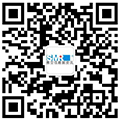"Lafite" Trademark Infringed! Château Lafite Rothschild Wins 2M Yuan Compensation!
On the dining tables of Chinese consumers, red wine is gradually becoming a staple of daily life, no longer just an exotic import. Data from the International Organization of Vine and Wine shows that China has become one of the largest wine-consuming countries in the world, with an annual consumption exceeding 1.8 billion liters.
Recently, the Shanghai Intellectual Property Court made a ruling in the trademark infringement case of Château Lafite Rothschild against Baochun Company and Baozheng Company. The court determined that the defendants' use of wine products bearing the "Lafite" mark constituted infringement. They were ordered to cease the infringing activities, eliminate the impact, and compensate for economic losses amounting to 2 million yuan.
The core dispute of this case revolved around the determination of trademark similarity and the protection of unregistered well-known trademarks. After more than three years of trial, the court ultimately clarified the legal standards applicable to foreign-related trademark disputes.
The case began in 2015 when the plaintiff, Château Lafite Rothschild, discovered that Baochun Company was importing wine with labels prominently featuring "CHATEAU MORON LAFITTE." The term "LAFITTE" differs from the plaintiff's registered trademark "LAFITE" by only one letter, "T." Additionally, the back label used the Chinese mark "Lafite Manor," which is highly similar to the plaintiff's unregistered Chinese trademark "Lafite."
The plaintiff argued that "Lafite," as a phonetic translation of its trademark, had established a stable corresponding relationship through long-term use. The defendants, as professional importers, knowingly used similar marks despite being aware of the genuine trademark, constituting willful infringement.
The defendants, however, contended the following:
-
The plaintiff's Chinese trademark "Lafite" was only registered in 2017, while the alleged infringement occurred between 2015 and 2017.
-
"Lafite" had not been actually used in the category of wine products, failing to meet the criteria for recognition as a well-known trademark, and there was insufficient evidence of market confusion.
-
"LAFITTE" is a common suffix for place names in the Bordeaux region, and "Lafite" is a legitimate phonetic translation.
The court found that the plaintiff's "LAFITE" trademark, registered in 1997, had been in continuous use for over 18 years. Through extensive market promotion and media coverage, it had gained significant recognition in the Chinese wine market. Although the Chinese trademark "Lafite" was only registered in 2017, according to Article 13 of the Trademark Law, an unregistered trademark that meets the criteria for being well-known is still entitled to protection. The court, considering sales data, advertising expenditure, and consumer awareness surveys, determined that the recognition of "Lafite" among the relevant public met the criteria for a well-known trademark.
In determining trademark similarity, the court combined technical comparison with market surveys. The data showed that "LAFITTE" and "LAFITE" differ by only one letter, with a phonetic similarity of 90%. Although "Lafite" and "Lafite Manor" differ by one character, the difference in Hanyu Pinyin is only 15%. A sample survey indicated that 23% of consumers were likely to be confused.
Regarding compensation, the court took into account the number of infringing products (28,000 bottles), the industry profit margin (58%), and the reasonable expenses for rights protection (620,000 yuan). The court ultimately ruled that the two defendants should jointly compensate 2 million yuan.
The judgment specifically pointed out that importers have a "duty of reasonable avoidance" regarding well-known trademarks and must not evade infringement liability by adding, deleting, or replacing words with homophones.
This case serves as a clear warning to wine importers. When acting as agents for imported products, they must strictly review trademark labels to ensure that translations are consistent with the original text. For consumers, the court advises checking the producer's name (the genuine product is marked "Domaines Barons de Rothschild"), the barcode on the wine label (French original bottles start with 30-37), and any abnormal pricing (the infringing products in this case were sold at a price 35% lower than the market price).
